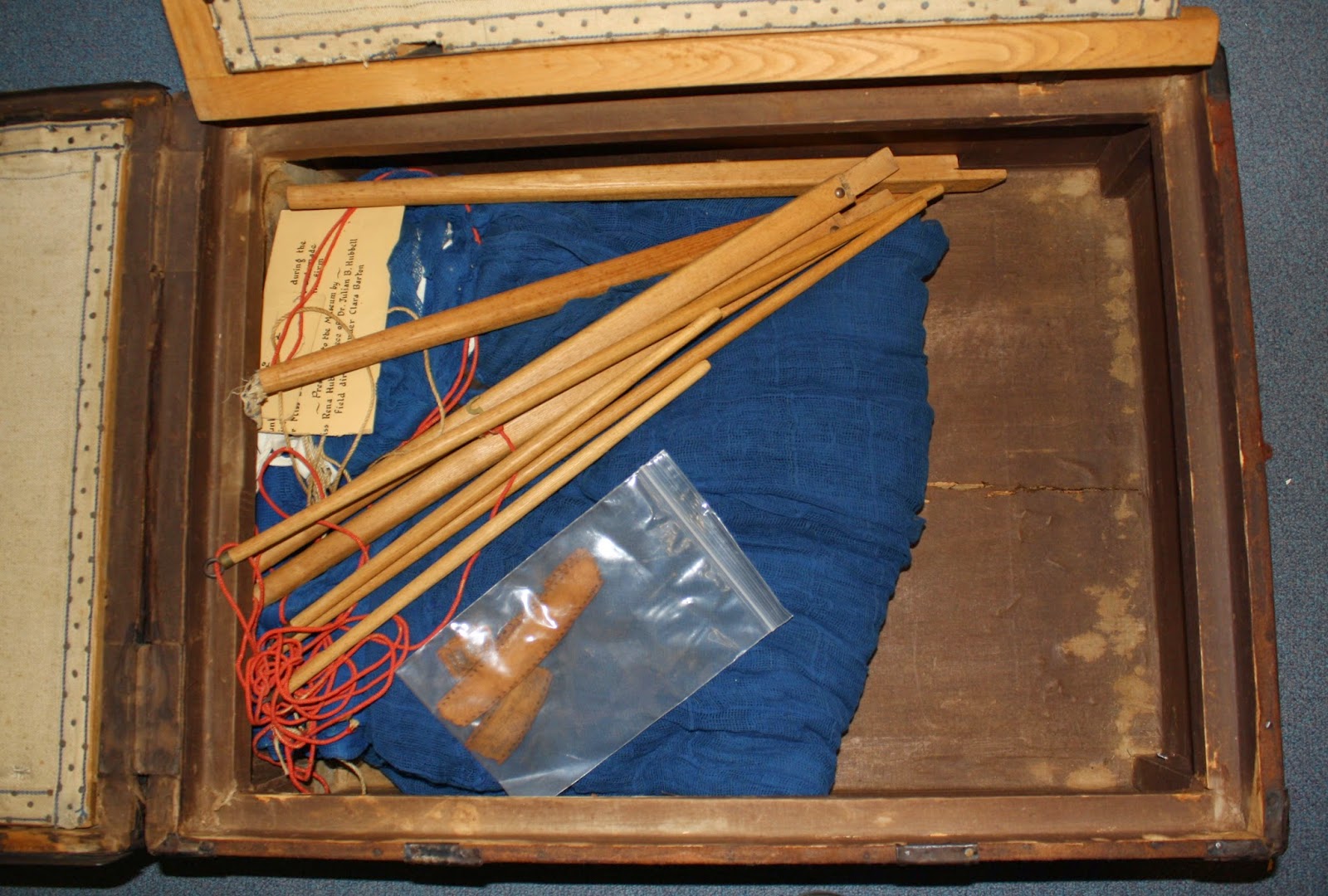I have
some exciting news for all the Clara Barton fans out there! The National Museum of Civil War Medicine is working
with the American Red Cross in Washington DC to put Clara Barton’s trunk bed on
display! Since we are still working on
some environmental and security issues at the Clara Barton Missing Soldiers
Office, the trunk bed will be displayed at our main museum. A trunk bed, as the name implies, is a small
bed, or cot, which folds into a trunk to become more easily portable. This is the trunk bed Clara Barton used when
she traveled to the battlefields and hospitals during the Civil War, so it is particularly appropriate for display
here at the NMCWM.
There is
even a mention of it in the book, Clara Barton: Professional Angel by
Elizabeth Brown Pryor: "The first
movements of the expedition to Charleston failed, though Barton dryly remarked
that she had "seen worse retreats if this be one," She was disappointed in being excluded from
what little action did take place and was surprised to find that she had time
to settle in and become accustomed to the pace of life at Hilton Head. She and David [her brother] were given two
rooms next to the chief quartermaster, furnished with a collection of makeshift
furniture and castoffs from the local plantations: a large mahogany table
"evidently once very costly," a rocking chair, and Egyptian
marble-topped bureau, mosquito netting for curtains, and Clara's army trunk
that unfolded into a bed."
We were all excited at the prospect of displaying Clara's bed, but first we had to get it here. Packing and moving a 150-year-old trunk bed is a bit more involved than moving a regular bed!
 |
| Though it was just a short distance to the museum from the street, we made sure the crate stayed securely on the cart! |
 |
| The trunk folds out to make this small cot. I’m sure it’s quite functional, but it sure doesn’t look comfortable! It’s also in remarkably good shape. |
I am currently
doing some research on this bed, and preparing to put it on display. Be sure to check back later for more photos
and more news on this unique Clara Barton artifact! In the meantime, take a look at this short
video clip on the bed’s journey to my museum, here.
Photos courtesy of the National Museum of
Civil War Medicine.




No comments:
Post a Comment